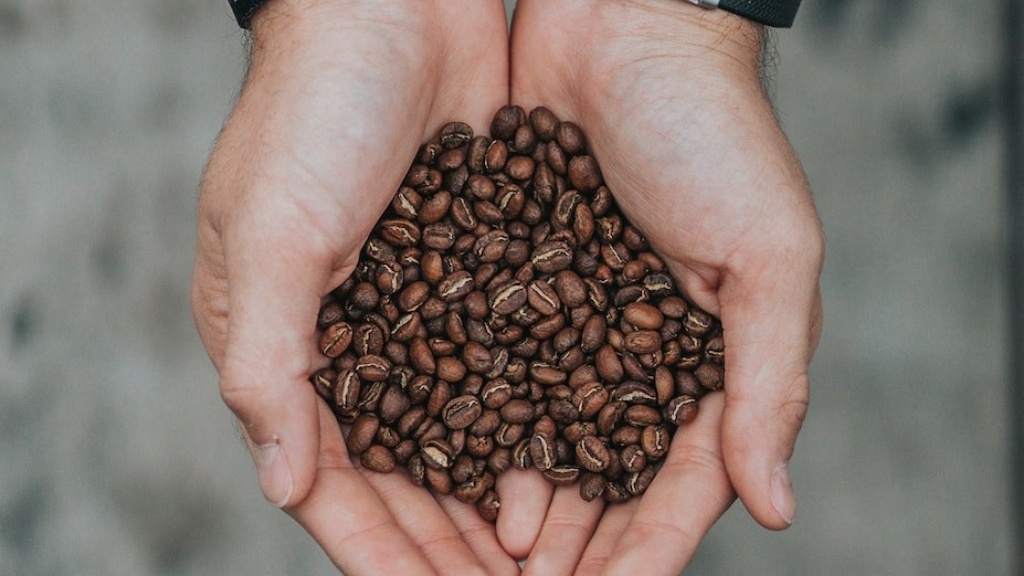Can I Drink Coffee After Having Diarrhea?
If you’re suffering from diarrhea, the idea of having coffee might not sound appealing. But is it okay to drink coffee after having diarrhea? This depends on the severity of your symptoms, your usual caffeine intake and the timing.
Most medical professionals agree that if you’re suffering from diarrhea, you should temporarily suspend your caffeine intake. Caffeine is a stimulant, so it can speed up your body’s metabolism, leading to faster elimination of food and thus leading to increased diarrheal episodes.
This is especially true if you have an underlying medical condition like irritable bowel syndrome or Crohn’s disease. However, if you’re merely suffering from an acute episode of diarrhea, then it’s okay to moderate your caffeine intake. Caffeine isn’t known to worsen the symptoms of diarrhea as much as solid foods.
Dr. Melissa Morgenstern, a gastroenterologist at the University of California-Davis, explains that generally, it’s okay to add a cup of either decaffeinated coffee or tea to your daily routine while you have diarrhea. She further cautions that if your diarrheal symptoms are severe, then caffeine should be avoided altogether as it could worsen the condition by causing dehydration.
Caffeine is a diuretic, so it can cause our bodies to flush out more fluids than normal. This is especially problematic when we are already suffering from decreased fluid intake due to diarrhea. Even if you do decide to drink coffee, make sure to drink plenty of water to combat any dehydration.
The other issue to consider is the timing of your coffee intake. Eating or drinking when we’re having an episode of diarrhea can make the condition worse, particularly if the food is high in fat and fiber. Instead, opt for smaller meals when you’re dealing with diarrhea and wait a few hours after the diarrheal episode has subsided before consuming coffee.
In conclusion, if you’re suffering from diarrhea and would like to ease the symptoms with some mild caffeine, then it’s generally okay. However, it’s a good idea to temporarily suspend your caffeine intake if you’re having severe symptoms. If you do decide to drink coffee, make sure to moderate your intake, drink plenty of water and wait for the diarrheal episode to pass before consuming coffee.
What Are the Causes of Diarrhea?
Diarrhea usually occurs due to underlying medical conditions or as a result of certain medications. The most common causes of diarrhea include irritable bowel syndrome, food poisoning, medications, infections, and Crohn’s disease.
Irritable bowel syndrome (IBS) is a common digestive condition that affects up to 11% of the population. It can cause abdominal pain and cramping, as well as watery and urgent stools. Food poisoning can also cause diarrhea, with symptoms typically occurring 6 to 24 hours after eating contaminated food. Usually, food poisoning resolves in 48 to 72 hours.
Certain medications, such as antibiotics, are also known to have diarrhea as a side effect. Infections from viruses, parasites, or bacteria can also cause diarrhea, particularly in children. Lastly, Crohn’s disease is an inflammatory bowel disease and can cause abdominal pain and urgent diarrhea.
Diarrhea Treatment
The main goals for treating diarrhea include restoring normal stool consistency and reducing or preventing dehydration. Depending on the cause, antibiotics may be necessary to treat a bacterial infection.
For mild diarrhea, the best treatment is to focus on rehydration and allowing your stomach to rest. It’s important to drink plenty of fluids, such as water and electrolyte-containing beverages. Avoid caffeine, alcoholic drinks, and sugary drinks.
Accompanying the fluid intake, eat smaller meals more frequently throughout the day, particularly those high in essential nutrients and low in fat and fiber. Bland foods are best tolerated, such as mashed potatoes, white rice and applesauce, as well as foods high in sodium and potassium.
Treating Dehydration
Severe cases of diarrhea can cause a great amount of dehydration and electrolyte imbalances. If this is the case, medical attention is needed. Over-the-counter rehydration solutions, such as Pedialyte or Gatorade, can be used to restore lost fluids and electrolytes.
In severe cases of dehydration, intravenous fluids may be administered to replenish lost fluids and electrolytes. For those with no access to intravenous fluids, oral rehydration solutions can be used instead. Talk to your physician about the best treatment option for you.
Preventing Dehydration
Focusing on rehydration and preventing dehydration is the main way to treat diarrhea. It’s important to drink plenty of fluids, including water, electrolyte-containing fluids, and clear non-caffeinated beverages. It’s also important to avoid diuretics, such as caffeine and alcohol, which can further lead to dehydration.
If you’re experiencing severe diarrhea, then it’s best to avoid solid foods, particularly those high in fat and fiber. Focus on small, nutrient-dense meals with low-fat and low-fiber foods. Additionally, it is important to seek medical attention if you’re suffering from severe dehydration due to prolonged bouts of diarrhea.
Does Coffee Dehydrate?
Yes, coffee is a diuretic, meaning it will increase the amount of fluid that is expelled from the body. Caffeine works by stimulating the kidneys, which results in increased production of urine. This can be an issue for those suffering from diarrhea, as they are already at risk for dehydration.
Coffee also can speed up the metabolism, resulting in a faster elimination of food and thus leading to further bouts of diarrhea. If you’re already suffering from severe diarrhea, then it’s best to avoid caffeinated beverages until the symptoms subside.
It is important to note that not all caffeinated beverages are created equal. Tea actually contains a small amount of caffeine and many of the antioxidants, which may help soothe an upset stomach and can even act as a mild diuretic. Coffee, however, contains significantly more caffeine and may exacerbate existing diarrheal symptoms.
It’s important to remember that everyone is different, and what works for one person may not work for another. If you’re unsure about whether it’s safe to drink coffee after having diarrhea, talk to your doctor.
Take Home Message
If you’ve been suffering from diarrhea and wonder whether it’s safe to drink coffee, then it depends on the severity of your symptoms and how much caffeine you normally consume. Generally, it’s okay to have a cup of either decaffeinated coffee or tea to your daily routine, but it’s best to avoid caffeine if your symptoms are severe. It’s also important to drink plenty of fluids and wait a few hours after an episode of diarrhea before consuming coffee.
If you’re having severe or prolonged bouts of diarrhea, it’s a good idea to seek medical advice. The main goal for treating diarrhea is to restore normal stool consistency and prevent dehydration. It’s important to drink plenty of fluids, eat smaller meals throughout the day and avoid diuretics such as caffeine and alcohol.





